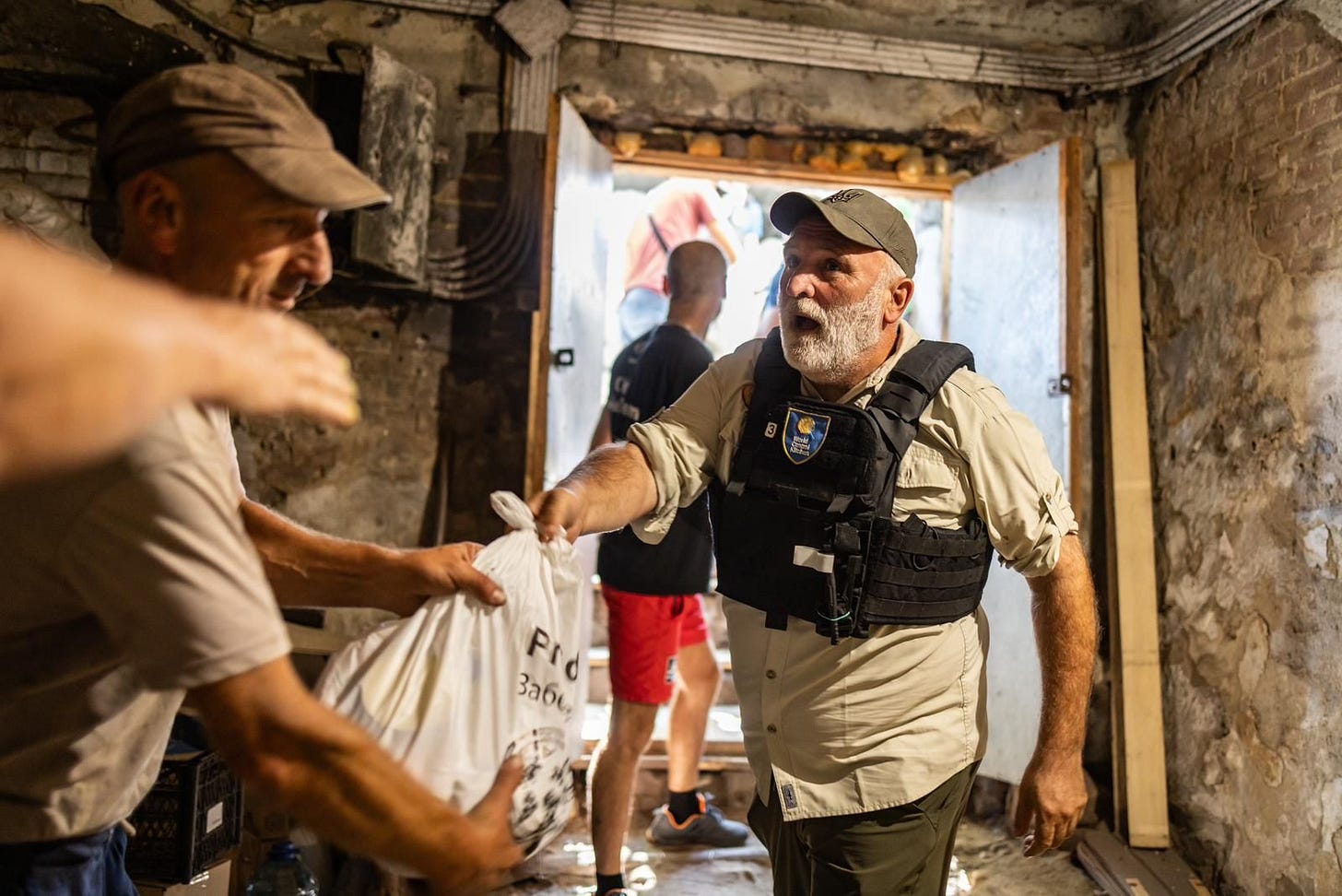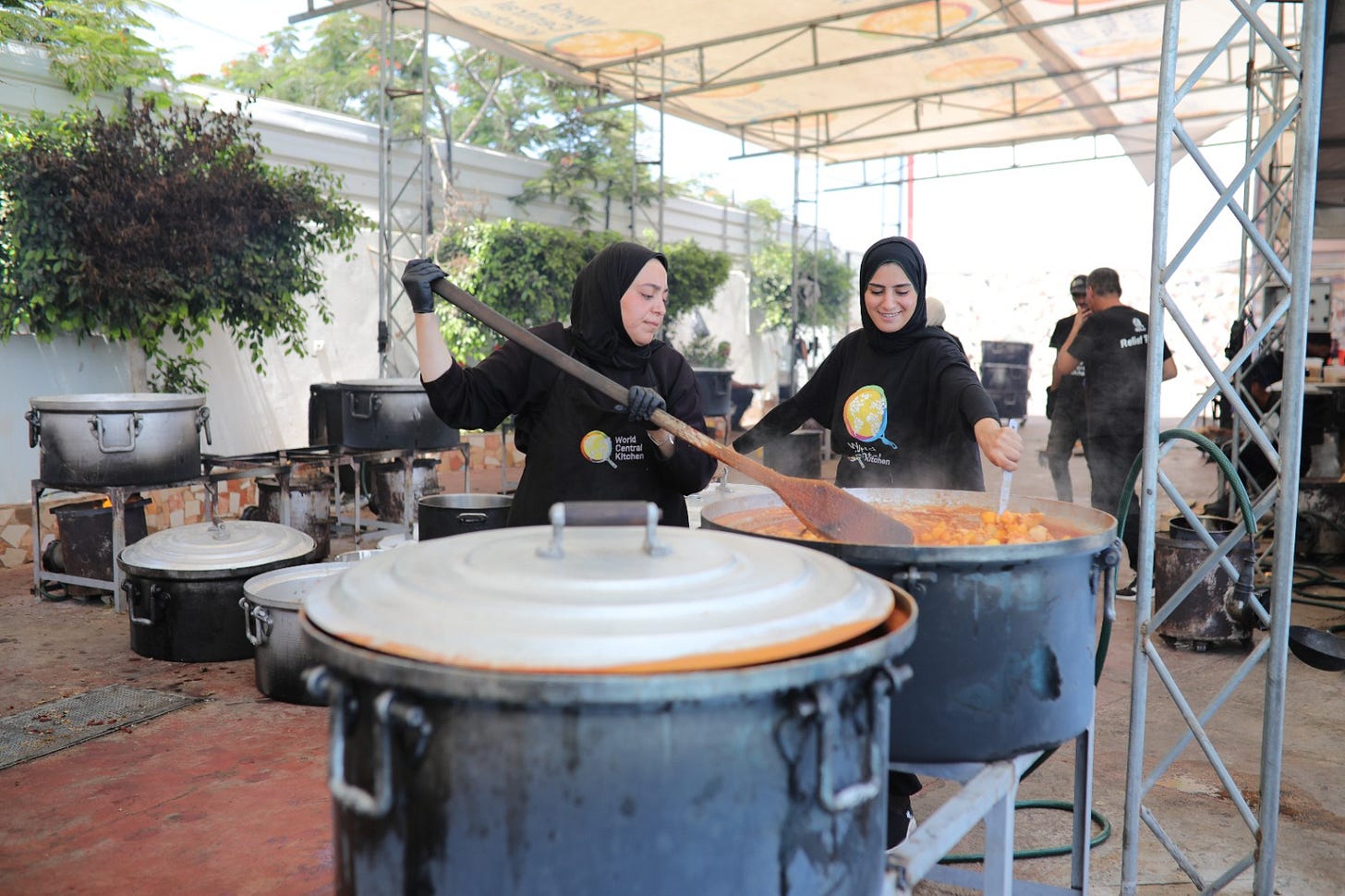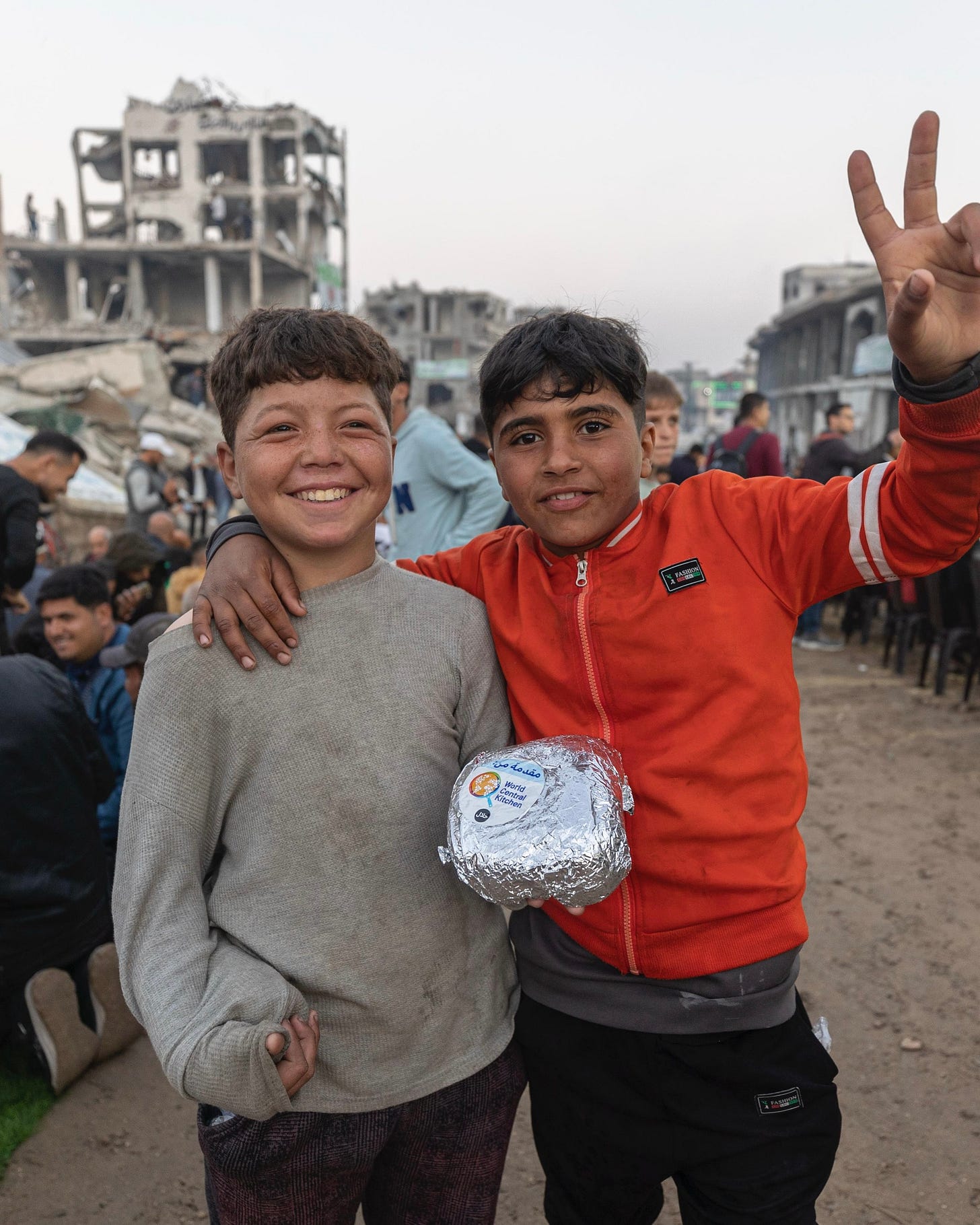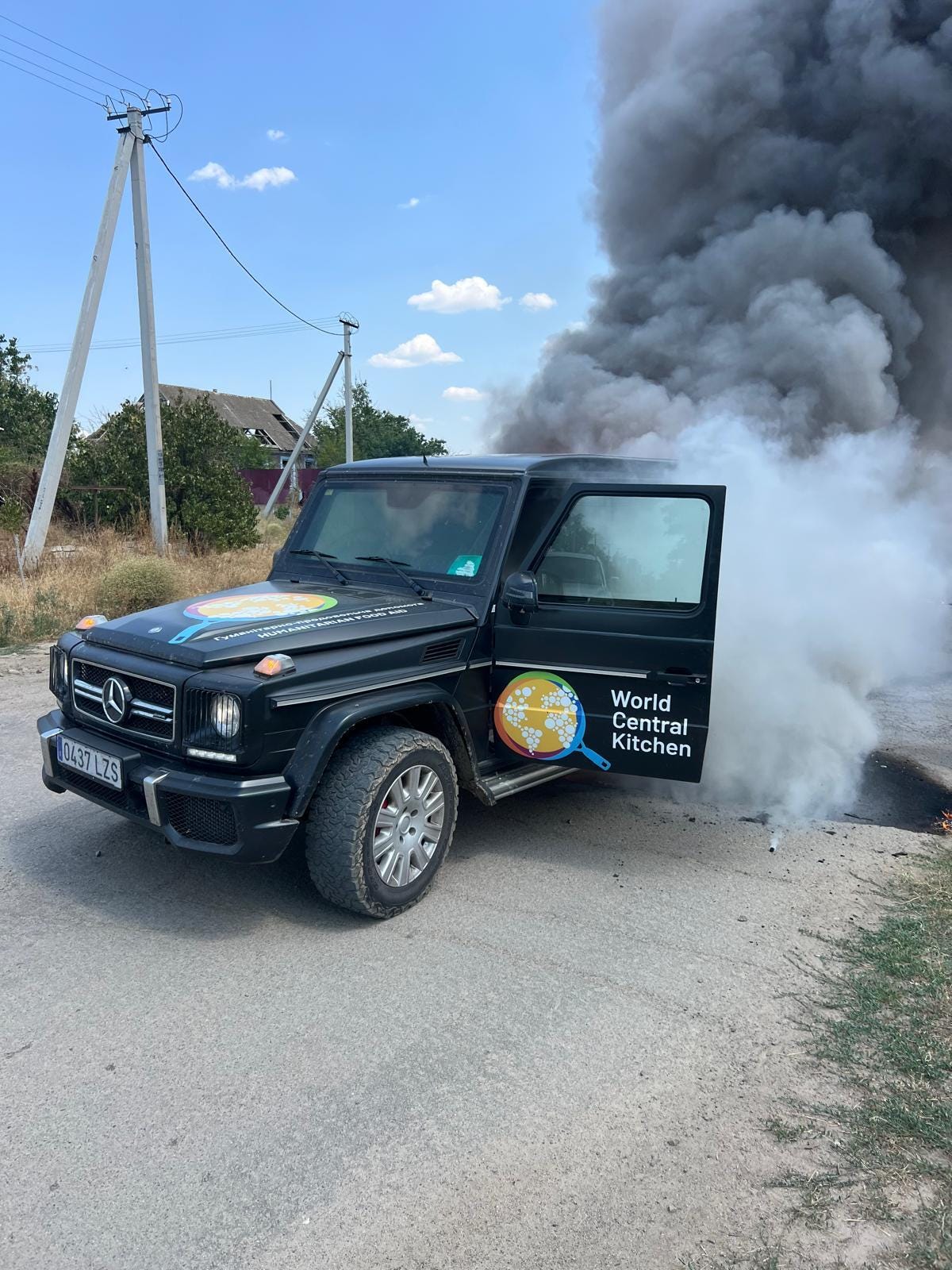Where Hunger is the Weapon: Part 2 - The Frontline Cooks
World Central Kitchen is feeding people in war zones where governments fail, and risking their lives to do it.
In this three-part series, we examine how starvation is being used as a deliberate tool of war, from the blockaded neighborhoods of Gaza to the scorched farms of Sudan. When food becomes a weapon, feeding people becomes resistance.
Previously in this series, Part 1: The Siege of Gaza.
Risking Everything to Feed the Forgotten

In places where food is weaponized and starvation is deliberate, feeding people becomes an act of defiance. Few organizations are willing to take that risk. World Central Kitchen is one that does.
In April 2024, seven aid workers from World Central Kitchen (WCK) were killed in Gaza. Their convoy was marked, their route coordinated with the Israeli military, and their mission simple: deliver food to people who were starving. They were chefs, volunteers, and humanitarians, and they were targeted while trying to serve meals.
This was not an accident. It was part of a brutal pattern: making hunger the battlefield, and punishing those who try to interrupt it.
WCK’s work in Gaza and Ukraine stands out not just for its scale but for its courage. Unlike larger institutions bogged down by bureaucracy, WCK moves fast. They show up days after disasters, sometimes hours. They hire local cooks, use local kitchens, and serve hot, culturally appropriate meals—often under fire.
Their motto isn’t poetic. It’s operational:
“Food is a universal human right.”
Feeding Gaza Under Fire

Since the blockade tightened, Gaza has become a graveyard for children and a gauntlet for aid workers. WCK, despite losing staff in an airstrike, continued to feed people. They set up community kitchens, organized meal deliveries, and collaborated with Palestinian chefs and local partners. Each meal they delivered meant someone didn’t go to bed starving or die waiting for a bag of flour.
The April attack that killed WCK staffers shocked the world, but it didn’t stop them. Instead, it sharpened the stakes: feeding people isn’t just charity. It’s resistance against a system that says some lives are worth less.
Ukraine: A Different War, the Same Mission
In Ukraine, WCK has operated since the full-scale invasion began in 2022. Their teams have served millions of meals, often within hours of missile strikes. In bombed-out towns and frontline cities, they bring comfort that looks like soup, bread, and a warm face.
When Russia bombed grain silos, blocked ports, and tried to starve parts of Ukraine into collapse, WCK responded with scale and speed. They cooked in Kharkiv, Lviv, Mykolaiv. They even delivered meals to train stations used for evacuations. It’s not flashy, it’s survival.
A Decentralized Model That Delivers

Part of what makes WCK effective is its model. They don’t fly in foreign aid teams with pre-packaged food; they work with local restaurants, chefs, and suppliers. They use whatever kitchens are available in schools, churches, and homes, and mobilize local talent to feed local people.
This decentralized approach means less red tape, more cultural sensitivity, and a faster response. It also builds dignity into the aid process: people get warm, familiar meals from people who speak their language and understand their lives.
Where the UN or governments may take weeks to scale up, WCK often responds within 24 to 48 hours.
New Threats to Their Mission

The April 2024 airstrike in Gaza wasn’t an isolated risk. It marked a growing trend: aid workers are increasingly being seen as targets. Now, WCK’s ability to operate safely is under pressure not just from direct violence, but from political obstruction, misinformation, and shrinking humanitarian space.
Some host governments, military forces, and armed groups view independent aid efforts as threats, or worse, as “sides” in a conflict. That perception turns food trucks into military targets and aid workers into collateral damage.
In Gaza, even after international outrage, the conditions for safe food delivery have worsened. Security guarantees are unreliable. Convoys are still attacked. Local partners are at risk every day. In Ukraine, long-term fatigue and donor burnout threaten the resources needed to keep kitchens open.
Why This Matters Now
When a group gets bombed for handing out food and still shows up the next day, you pay attention. José Andrés, WCK’s founder, said it simply:
“Wherever there’s a fight so hungry people may eat, we will be there.”
The act of feeding is often dismissed as secondary in war, but when starvation is being weaponized, feeding people is frontline work. It’s moral. It’s political. It’s urgent.
In both Gaza and Ukraine, WCK proves what real humanitarianism looks like: direct, fast, and unshaken by fear.
Want to Help?
Here’s how you can support World Central Kitchen’s mission in Gaza, Ukraine, and other war zones:
Donate to WCK – Every dollar feeds someone who would otherwise go hungry.
Follow their work on Instagram – See what impact looks like in real time.
Share this story – Awareness fuels action. Don’t let these efforts be ignored.
Coming next in Part 3: overlooked food crises in Sudan, Ethiopia, and Somalia—and why the world pays less attention when the starving aren’t in the spotlight.
Sources:
AP News: World Central Kitchen is saving lives with food, but paying a price in blood
WorldCentralKitchen.org: Our Story
WorldCentralKitchen.org: WCK provides critical support to Ukrainians impacted by war
WorldCentralKitchen.org: Let Us Cook

